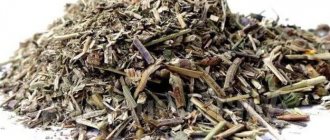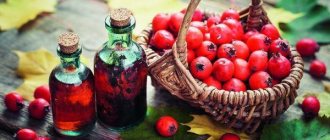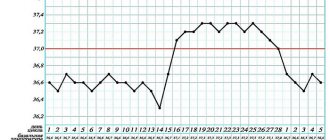Modern people are increasingly exposed to stress. This is especially true for those who live in big cities, places where large expenditures are required not only of finances, time, but also of energy, mental and physical strength. Stressful situations can cause problems with the functioning of the central nervous system and nervous breakdowns. Due to lack of sleep, overwork, and outbursts of anger, many internal organs malfunction. Therefore, you should pay special attention to your emotional state. One of the effective helpers is soothing tea.
How does calming tea affect the nervous system?
It is important to note that the effects of calming teas are not immediately noticeable. The result is observed after a few days.
Nature is rich in plants that contain components that slow down the reaction of nerve impulses. Tea, which calms the nervous system, is an opponent of insomnia; it helps cope with stress and is an effective means of relaxing and restoring the body. This drink is recommended for those people who dream of a restful sleep.
Chamomile tea
For many years, chamomile tea has been used as a natural remedy to reduce inflammation and anxiety and treat insomnia.
In fact, chamomile is commonly considered a mild sedative or sleep inducer.
Its calming effect can be attributed to an antioxidant called apigenin, which is found in abundance in chamomile tea. Apigenin binds to certain receptors in your brain that can reduce anxiety and initiate sleep.
A study of 60 nursing home residents found that those who received 400 mg of chamomile extract per day had significantly better sleep quality than those who did not receive it.
Another study of postpartum women with poor sleep quality found that those who drank chamomile tea over a 2-week period reported overall better sleep quality, compared to those who did not drink chamomile tea.
However, a study of people with chronic insomnia found that those who received 270 mg of chamomile extract twice daily for 28 days did not experience significant beneficial effects.
Although the evidence supporting the benefits of chamomile is conflicting and weak, some studies have shown encouraging results. Further research is needed to confirm the effects of chamomile tea on sleep.
Conclusion:
Chamomile tea contains an antioxidant called apigenin, which may help initiate sleep. However, the evidence supporting the benefits of chamomile is conflicting.
What herbs are used
Soothing herbal teas come in single-ingredient, double-ingredient or multi-ingredient varieties. It depends on what plant is included in their composition.
Among the herbs, the most effective and often used to calm the central nervous system are:
- Chamomile has a calming and relaxing property. Used to normalize sleep and relieve muscle spasms. After drinking chamomile tea, anxiety and panic disappear. This drink is allowed for young children. In addition, chamomile is considered a good disinfectant and anti-inflammatory agent.
- Melissa copes well with irritability and headaches. Tea made from it relaxes and at the same time tones the body, encouraging the heart to work harder. Its use should not be lengthy and chaotic. This leads to increased blood pressure.
- Motherwort helps get rid of strong heartbeat and quickly relieve irritation. This plant has strong sedative properties.
- Peppermint has a mild sedative effect and serves as an excellent assistant in the treatment of many diseases of the central nervous system. Compositions with this herb are best taken before bed.
- Linden helps cope with irritability and headaches. Tasty and aromatic tea from this plant can be given even to infants. Its regular use helps reduce the reaction of the excited nervous system.
- Calendula helps get rid of headaches, increased excitability and insomnia.
- Valerian is considered one of the most effective sedative herbs. With its help, it is possible to normalize the functioning of the nervous system in case of any unrest.
- St. John's wort has a mild effect on the central nervous system, providing it with stress resistance in all situations.
- Ginger has numerous beneficial properties. Ginger tea is a great help in stressful situations. It helps to restore vitality and renew strength in a short time.
- Hops have many beneficial properties. This bactericidal, antiseptic, antispasmodic, sedative, anti-inflammatory plant is used to make medications that help reduce the symptoms of menopause. Tea with hops is recommended for people suffering from nervous disorders.
Recipes for soothing tea that will relax your nerves and prevent stress
Chamomile tea
Chamomile relieves nervous tension and anxiety.
The most common, simple and accessible recipe. This tea is not boiled when preparing. As a rule, chamomile flowers are simply poured with hot water and left for 7-10 minutes. Then filter and drink. For 200 ml. 1-2 tsp of water is needed. chamomile flowers. If a richer taste is required, the infusion time is increased to 20 minutes. This tea perfectly calms, fights insomnia, aggressiveness, and anxiety. Can be taken both during the day and in the evening.
Linden tea
Linden successfully fights confusion and nervousness, improves mood
Linden tea attracts not only its composition, rich in vitamins and microelements necessary for the body, but also its enchanting aroma. To prepare, pour boiling water over the linden inflorescence and cover with a lid. It is advisable to wrap it in a towel or place the teapot in a warm place. It should infuse for 5-6 minutes. For 200 ml. you will need 2-3 tsp. colors. This tea has a calming effect. If you want to achieve this effect, you need to use it in small doses (about 100 ml per day). At large doses, the drink has the opposite effect, that is, it excites the nervous system.
Tea with valerian
Valerian officinalis has a relaxing and sedative effect, restores heart rhythm.
A drink with a pleasant taste and a slight sedative effect. In order to prepare, you need to grind the valerian root so that you get 2 tsp. Then you should pour the resulting mass into 0.5 liters. boiling water and close the lid tightly so that the essential oils do not evaporate. After 10 minutes the tea is ready to drink. This drink has sedative properties, soothes headaches associated with nervous tension, and helps with insomnia.
Melissa tea at night
Melissa has a mild effect, increases stress resistance and relieves tension and fears.
Popularly, lemon balm is called lemon balm, and tea made from it has an excellent taste, aroma and medicinal properties. To prepare, you need to pour 30 g of chopped lemon balm with 1 liter of boiling water. The drink should be infused for 30 minutes. After this time, 2 tsp is added to the tea. honey You can drink this drink up to three times a day at different times. Use it for insomnia, irritability, nervousness, and depression.
With motherwort
Motherwort helps with depression, relieves muscle spasms.
Motherwort has been known to humanity for a very long time. You don't need to put in a lot of effort to make tea from it. 2 tsp 200 ml are poured. water. The container in which the drink is brewed is tightly closed. It is necessary to insist for 10-15 minutes. After which the tea must be strained through cheesecloth and then consumed. In order for the drink to have a calming effect on the nervous system, you need to drink a whole course of 30 days. You need to drink one cup a day, but you can drink it whole, or you can divide it into several doses.
Herbal infusions
In order for sedative tea to truly alleviate a painful condition and bring pleasure with its aroma and taste, it is necessary to choose the right ingredients.
Herbal complexes are very often used in decoctions. These include yarrow, linden, sage, chamomile, mint, rose hips, oregano and a number of others. Various berries, such as lingonberries, are added as an additional additive. In order to prepare a decoction, you need to take 2 tablespoons of at least 6 herbs, mix them and grind them until smooth. Take 2 tbsp from the prepared mixture. and pour two cups of hot water over them. Then you need to boil everything for 5 minutes, and then leave in a thermos for about 1.5 hours. It is recommended to drink half a glass three times a day. This decoction not only soothes, but also strengthens the immune system.
With mint
Mint restores sleep, eliminates anxiety and irritability.
You can brew mint either fresh or dried. To prepare, you need to mix mint leaves and tea (black, green) in equal proportions. Pour boiling water over and leave covered for 5-10 minutes. You can add ginger for taste. In small quantities, this tea will act as a sedative. If you drink more often and more, the drink will, on the contrary, tone the nervous system. Based on the result you want to get, the amount of tea consumed also depends.
With sage
Sage eliminates nerve pain and spasms, helps you sleep.
Sage can be added as a seasoning to dishes, but it is considered especially valuable in tea. In order to cook, you need to pour 2 tsp. sage leaves 200 ml. hot water. Let the drink brew for 30 minutes under a tight lid. Afterwards you need to strain and add honey if desired. It is recommended to drink half a cup of this tea in the morning and at night. It strengthens the nervous system, makes it resistant to stress, and also helps with colds and viral diseases.
And so, in order to normalize the functioning of the nervous system, get rid of stress and depression, you do not always need to consult a doctor. In some cases, you just need to sit back and relax. And herbal teas and decoctions can help with this perfectly, the recipes for which are available in a wide range to choose from. Moreover, such drinks have a pleasant taste and aroma, which is rare for medicines.
How to make soothing tea at home
Recipes for soothing teas are quite varied and numerous. You can prepare them yourself without much difficulty.
It is recommended to brew herbs along with green tea, which is also considered a healthy drink.
Recipe No. 1
To prepare this soothing tea, combine green tea with motherwort and hop cones in equal proportions. 1 tsp. This mixture is poured with boiling water and left for at least 20 minutes.
Recipe No. 2
Oregano, mint, chamomile, hops and St. John's wort, taken in equal proportions, are an excellent sedative. For making tea 1 tbsp. l. mixture of these herbs is poured into 1 tbsp. boiling water and infuse for 15 minutes.
Recipe No. 3
Linden, chamomile and St. John's wort, brewed simultaneously with green tea, perfectly calm and normalize the functioning of the central nervous system. To prepare the drink you need 1 tbsp. l. Mix the herbs with tea and pour boiling water over it. Infusion time 15 minutes. When consumed, honey is added.
Typically, teas that have a sedative effect are drunk 30 minutes before bedtime for at least 20 days.
You can add some dried fruits, which will improve the taste of the tea and increase its beneficial qualities.
More: Monastic tea for the heart
What do you need to know?
When purchasing ready-made herbal tea, it is important to pay attention to the composition. It is desirable that there are no artificial colors or flavors. Contraindications and restrictions for use are: hypersensitivity to the components of the collection, clinical depression, which is accompanied by suppression of the activity of the central nervous system.
During the systematic use of herbal teas, you must adhere to the following recommendations:
- Avoid drinking alcohol and minimize coffee consumption.
- Exercise caution when driving.
- It should be remembered that some herbs with a calming effect enhance the effect of sleeping pills and sedatives, analgesics and alcohol.
- Do not exceed the dosage per day - the optimal daily dosage is 200-250 ml. Abuse of herbal drinks can lead to drowsiness, decreased physical and mental activity, and dizziness.
- Calming teas are a kind of medicine. Therefore, they must be taken in a course with a mandatory two-week break.
- For greater effect, drink herbal tea not hot, but warm.
- During pregnancy and lactation, consultation with a doctor is necessary.
Sleeping pills and sedative teas are not a panacea for nervous disorders, severe forms of insomnia, or clinical depression. This is only an auxiliary means for maintaining the nervous system of an adult in good shape. In other cases, medication may be required.
We advise you to read: How to brew St. John's wort for tea, benefits and harms, how to drink, herbal preparations
Important Tips
Whatever medicinal tea you choose, you need to know the basic rules thanks to which the herbal tea will have a calming effect.
Rule 1: you need to take a soothing drink at the same time, without interruption - if the problem is pronounced. If an adult or child periodically, inconsistently has problems, has periodic outbursts of anger, irritability, then you can drink tea once, occasionally.
Rule 2: You can drink tea for no longer than 1 month. Then you definitely need to take a break of 2 weeks.
Rule 3: if a person’s psycho-emotional state has returned to normal, then there is no need to continue drinking soothing tea, as if to consolidate the results of treatment.
Rule 4: the composition of tea should change. You should not take the same sedative for more than six months, so as not to cause an addictive effect.
Rule 5: you need to take herbal tea for insomnia 1-2 hours before bedtime, no later; for irritability - immediately before bedtime.
Rule 6: you need to start taking soothing tea with small doses.
Calming infusion for children
The modern younger generation also has problems with the nervous system. This is due to many factors. In such cases, soothing tea for children comes to the rescue.
But before giving it to your child, you need to consult a doctor. Among the contraindications to the use of such herbal teas, it is worth noting individual intolerance to the constituent components of the drink.
When storing tea or herbs for a child, all rules and regulations must be observed.
Passionflower tea
Passionflower tea is made from the dried leaves, flowers and stems of the passionflower plant.
Traditionally it has been used to relieve anxiety and improve sleep.
More recently, studies have examined the ability of passionflower tea to relieve insomnia and improve sleep quality.
For example, one study of 40 healthy adults found that those who drank passionflower tea daily for 1 week reported significantly better sleep quality compared to participants who did not drink the tea.
Another study compared a combination of passionflower and valerian root and hops with Zolpidem, a drug commonly prescribed to treat insomnia.
The results showed that the passionflower combination was as effective as Zolpidem in improving sleep quality.
Conclusion:
Drinking passionflower tea can improve your overall sleep quality. Additionally, passionflower, when combined with valerian root and hops, may reduce symptoms of insomnia.
Tea for newborns
The sleep of a restless newborn baby can be normalized with the help of fennel. Tea from the plant calms the nervous system and relaxes the baby's muscles.
You can replace fennel with chamomile, which has a beneficial effect not only on the baby’s nervous system, but also on the digestive system. Two teaspoons of this drink are enough to feel its positive results.
After the baby reaches one year of age and with increased hyperactivity, you can calm his nervous system with tea made from lemon balm, motherwort and sage. This tea has a beneficial effect on children's sleep.
After 3 years, a drink made from mint, linden and lemon balm helps the child cope with anxiety and promotes perseverance.
Honey added to tea not only improves the functioning of the immune system, but also improves the functioning of the child’s gastrointestinal tract. The main thing is that the child does not have an allergy to this beekeeping product.
Tea for children's relaxation
In the modern world, a child is also subject to negative influences and suffers from sleep disorders. Nightmarish dreams are constant companions of the night's rest. Today, manufacturers offer a huge range of children's products that help stabilize their nervous system. These are single or multi-component preparations based on medicinal plants.
Calming tea for restless children before bed can be purchased in the form of convenient filter bags or dried raw materials for brewing. When purchasing a product, you should pay attention to its composition. The table shows which herbs can be used to expand the range of the “natural pharmacy” as children grow.
AgeName of plants and permitted products
| 0-4 months | Fennel tea |
| 4 months - 1 year | + chamomile tea |
| 1-2 years | + motherwort, lemon balm, sage |
| 3-5 years | + valerian and thyme |
| 6-7 years | + linden blossom and honey |
We advise you to read: Benefits of teeth whitening technology
You can make herbal infusions yourself, but it is better to purchase them ready-made.
Calming charges for children
Mothers often ask what decoctions can be used to treat restless babies. It is recommended to consult with a specialist in order to achieve effective results and not harm the child’s body.
Here are some of them:
- chamomile flowers and honey;
- mint, hop cones, valerian root;
- lemon balm with chamomile flowers;
- fennel with mint and chamomile.
Children's bodies are more sensitive to herbs; use them only on the recommendation of a pediatrician.
In what cases can soothing teas cause harm?
Despite the positive aspects, soothing teas have many adverse reactions and contraindications. They contain tannins with an astringent and tart taste, as well as those with antibacterial properties and flavonoids. All these components can cause an allergic reaction.
For example, pregnant women are strictly contraindicated from taking valerian and oregano; this can lead to poor health.
People suffering from bradycardia are also not recommended to drink sedative teas, as this will further aggravate the situation.
The simultaneous use of soothing tea with sleeping pills or tranquilizers is undesirable.
This tea is contraindicated before work or while driving. The drink significantly reduces a person’s concentration, which can lead to the most irreversible consequences.
Herbal drink for calm
There is no more reliable and safe way than tea made from natural ingredients, which can help not only the nervous system, but also the body as a whole. In order to get a quality drink, you can collect the necessary herbs yourself during the season, and then brew tea that will calm your nerves. However, if you wish, you can purchase a ready-made herbal mixture at the pharmacy.
It should be remembered that there will be no immediate result under any circumstances. Herbs heal slowly and carefully, but have long-lasting results.
There are the most common herbs for calming. Among them are the following:
- Chamomile. A wonderful herb that has a calming and relaxing effect. It can relieve muscle spasms, normalize sleep, relieve anxiety, and reduce panic.
- Melissa. Reduces irritability, depression, migraines and fatigue. Important! Consuming this herb in large doses can cause high blood pressure.
- Valerian. Most often used to calm the nervous system. It calms the heart rate and also normalizes blood pressure. Great for dealing with irritability.
- Lavender. This herb is a wonderful remedy for combating stress and insomnia. Although some may be put off by its slightly bitter taste.
- Motherwort. Able to reduce susceptibility to various irritants, as well as calm the nerves. Attention! Strictly contraindicated for pregnant women, as well as nursing mothers.
- Veronica's grass. Able to cope with long-term disorders of the nervous system.
- Ginger. This plant has a large number of different beneficial qualities, but in addition to all its advantages, it is able to restore lost vitality.
- Linden. Great for combating irritability. Regular use can reduce the reaction of the nervous system to all kinds of stimuli.
- St. John's wort. It has a very gentle effect on the nervous system, increasing its resistance to stress. Only plant flowers that were collected from late June to mid-July are suitable for consumption.
Of course, there are a large number of pharmaceutical drugs that have a strong calming effect. But, the speed of action of such drugs can cause great trouble to the body, which can lead to even greater stress.
Even the weakest sedatives can be addictive. Herbal tea is an easier, and most importantly, effective way to calm down. Among other things, it can also bring pleasure from its use. At the same time, addiction does not arise from its use, which is important.
Magnolia bark tea
Magnolia is a flowering plant that has been around for over 100 million years.
Magnolia tea is made primarily from the bark of the plant, but may also include dried buds and stems.
Traditionally, magnolia has been used in Chinese medicine to relieve a variety of symptoms, including abdominal discomfort, nasal congestion and stress.
It is now valued all over the world for its calming and sedative effects.
Its sedative effect is likely due to a compound called honokiol, which is found in abundance in the stems, flowers and bark of the magnolia plant.
Honokiol is said to work by changing GABA receptors in your brain, which can increase sleepiness.
In several studies on mice, magnolia or honokiol, extracted from the magnolia plant, reduced the time it took to fall asleep and increased sleep duration.
While further research is needed to confirm these effects in humans, preliminary research suggests that drinking magnolia bark tea may help improve sleep.
Conclusion:
In studies on mice, magnolia bark tea was found to reduce the time it takes to fall asleep and increase the total amount of sleep by modifying GABA receptors in the brain. However, further studies are needed to confirm these effects in humans.
Chinese relaxing tea: the best varieties
What varieties of Chinese tea have pronounced relaxing properties, which variety can be called tea for relaxation? For those who want to have a pleasant rest before bed and calm down, we can recommend the following varieties:
Of course, first of all, we recommend buying relaxing oolong tea, it takes unconditional first place.
- Da Hong Pao (Big Red Robe) is one of the most expensive highly fermented oolongs, quickly relieving nervous tension;
- Milk Oolong (Nai Xiang Jin Xuan) relaxes and calms even the most irritated nervous system;
- The most relaxing tea, TieGuanYin, with its delicate aroma of orchids, also has a calming effect on the psyche;
Next up is relaxing Chinese green tea.
- Feng Yan (Phoenix Eye) tea contains a natural antidepressant - jasmine, which helps to quickly relieve nervous tension;
- Bound tea Moly Yu Long Tao is one of the best representatives of this variety, helping to quickly relieve headaches and fatigue.
You can buy relaxing tea in our online store with delivery throughout Moscow and all over Russia. And remember that Chinese relaxing tea contains very active substances that should not be abused before bed. One fragrant cup will be enough to truly delight your soul and relax your body.
2. Hawthorn
Hawthorn contains vitamins A, C, E, K, carotene, quercetin, iron, potassium, magnesium, vitexin, flavonoids, hyperoside, quercitron, caffeic, chlorogenic, oleanolic, ursolic acids. This medicinal plant, whose fruits are bright red in color and ripen in the fall, has a beneficial effect on the sympathetic nervous system and calms it well. Hawthorn has a mild sedative effect, so experts recommend taking it to people with mild anxiety or nervousness. It also helps with insomnia and chronic lack of sleep, as it normalizes sleep.
Hawthorn not only calms the nerves, but also lowers blood pressure, improves blood circulation, and normalizes the functioning of the cardiovascular system.
To prepare traditional soothing hawthorn tea, you need 1 tablespoon of hawthorn fruit and 1 tablespoon of black or green tea, pour 1 cup of boiling water. The drink should be infused for 5 – 7 minutes. You can add honey or lemon to the finished tea. You need to drink the drink in the evening, 60 - 80 minutes before you plan to go to bed.











